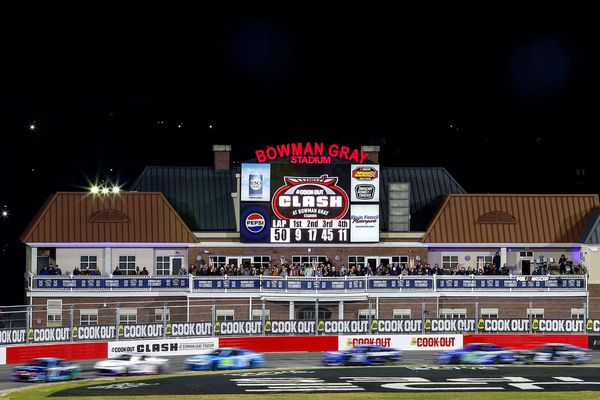
On the wild and remote west coast of New Zealand’s South Island, an old dame is getting a hot-pink makeover, with all the synthetic flowers, coloured beads and glitter she can take. Her name is Gloria, and she is an 83-year-old church, on her way to becoming a public sculpture and “queer beacon” for the local community.
“I didn’t grow up in the church, I grew up in a Jewish household, but mostly I grew up making things, and in recent years I’ve become more and more excited about queer celebration,” says poet and artist Sam Duckor-Jones.

Gloria, built in 1939, was formerly the St Peter’s Anglican Church in Greymouth, a town of roughly 14,000 people, on the map more for its mining history than mardi gras.
When Duckor-Jones felt ready to move from his home north of Wellington two years ago, but struggled to find an affordable home in the capital city, he searched the internet for “the cheapest house in New Zealand”. The church, which had been unused since 2000, popped up, and Duckor-Jones promptly fell in love.
He immediately set out to convert it into a “queer place of worship”, a sculpture (“not a renovation”) with 50 larger-than-life papier-mache congregation members. He will live there until the sculpture is finished, which he anticipates will take five years.

What people choose to worship, or how the public wishes to use the space, is entirely up to them, but creating a place for rural queerness to thrive is top of mind. “I really want them to feel some ownership for Gloria and feel like it’s their space they can come and hang out in or keep adding to after I move on.”
Gloria’s name was chosen as a hat-tip to Christian hymns, disco and a make-believe character Duckor-Jones and his brother created when they were children. “I put play at the very very top of everything that is important in the world.”

And playful it is – a campy pink wonderland with tinsel curtains and a neon “Gloria” sign. “I’ve always really enjoyed pink. Also, I like pushing a little bit of pink on the world. It’s not subtle – it says, ‘look at me’. It’s got its whole history with queerness, pride, gay liberation and gender. It is really powerful that people have strong feelings about pink, like they have about no other colour.”
When Duckor-Jones speaks of Gloria, he does so with the same reverence held for an elder, or a person with a character of their own. “I’m a nice, warm person but I’ve never been very good at participation in the community. But Gloria just wouldn’t have a bar of that attitude. People are just coming from far and wide and want to celebrate her with me.”
Since embarking on the project, local residents have been popping by, offering tools, relaying local history and embracing the bright queer beacon emerging on their quiet street. “I wanted Gloria to belong to the community, because I thought, at some point someone will do something stupid, like tag it or burn it down, and I want the community to be as outraged as well,” he says with a laugh.
Reclamation of traditional spaces and practices by queer communities has a long history, as does the collision of rural locales and queerness in popular culture. Duckor-Jones’ project has already drawn parallels with the English artist Derek Jarman’s Dungeness home, the gay activist group Sisters of Perpetual Indulgence and the cult drag film Priscilla Queen of the Desert.

“I like promoting a kind of quiet fabulosity,” Duckor-Jones says. “I really like sitting by myself crocheting but wearing, you know, a pink silk gown with some mascara, listening to Judy [Garland].”
“Gloria is kind of a representation of that – of being glittery and ridiculous and over the top, in small town New Zealand, in a quiet little corner where it rains a lot. Take that, Sydney.”







